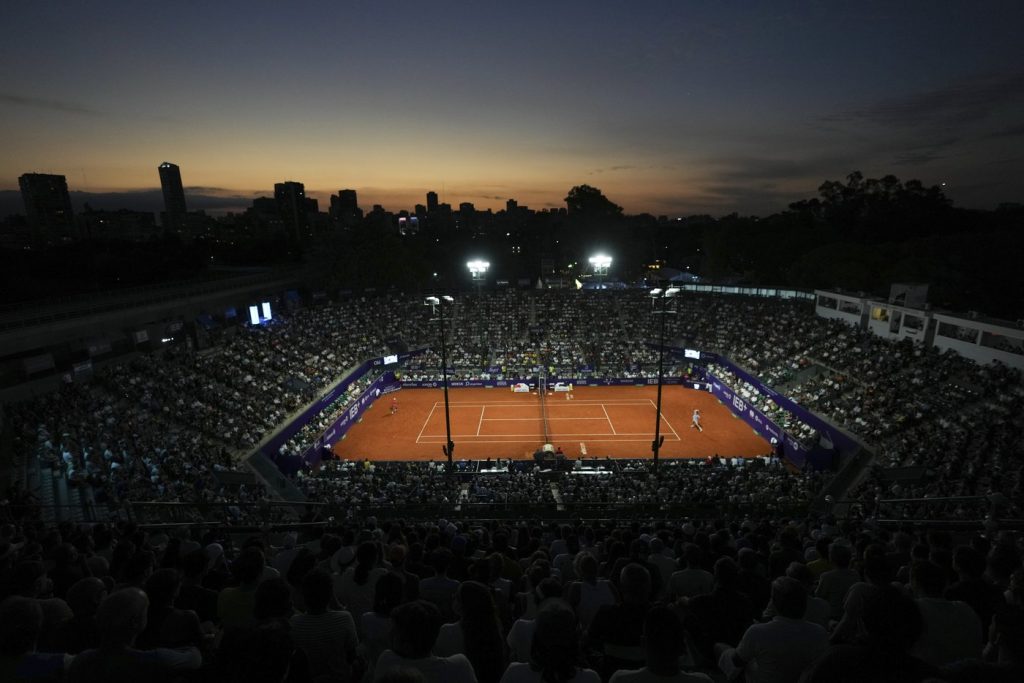MIAMI GARDENS, Fla. (AP) — Ons Jabeur, a prominent figure in professional tennis and a three-time Grand Slam finalist, has voiced her concerns regarding the current state of the sport. By the age of 30, Jabeur has accumulated over $13 million in prize money. During her visit to the main court for the Miami Open, she highlighted several issues that she believes need addressing to improve conditions for all players.
Jabeur advocated for a better structure within professional tennis, stressing the need for improved scheduling and match timings, claiming that the current number of tournaments is detrimental to players' health. "The balls changing every week is not a good thing," Jabeur noted, emphasizing that "players deserve to be paid better." As a member of the executive committee of the Professional Tennis Players Association (PTPA), which was co-founded by Novak Djokovic, Jabeur expressed confidence that there are "definitely a lot of things to work on."
These concerns were echoed in a recent class-action antitrust lawsuit filed by the PTPA in federal court in New York. The lawsuit targets the governing bodies of tennis, including the women’s (WTA) and men’s (ATP) tours, along with the International Tennis Federation (ITF) and the International Tennis Integrity Agency (ITIA), alleging that they operate as a "cartel." PTPA executive director Ahmad Nassar stated, "The players really do demand to be heard, to have their issues taken seriously," emphasizing the need for balance, equality, and fairness in the business of tennis.
The PTPA was established by Djokovic and Vasek Pospisil just before the 2020 U.S. Open to represent independent contractor players in a sport largely characterized by individual competition. The association claims that it consulted over 250 players, including a significant number from the top 20 in both the WTA and ATP rankings, before pursuing legal action.
The lawsuit primarily aims for increased financial compensation for players, while also addressing various complaints regarding the governance of the sport. Key issues cited include the distribution of revenues, the restrictions on tournament prize money, limitations on competing tours or events, a packed 45-week schedule per year, the lengthy duration of combined WTA-ATP events, and the rigors of match scheduling that can extend into the early hours. The lawsuit further criticizes the ITIA for perceived arbitrary actions in its anti-doping policies.
While the Grand Slam events—Wimbledon, U.S. Open, French Open, and Australian Open—were not listed as defendants, the PTPA categorizes them as "co-conspirators" under the ITF umbrella. According to the lawsuit, these tournaments collectively generated over $1.5 billion in 2024 but allocated only 10% to 20% of their revenues to players. Nassar pointed out that the Grand Slam tournaments lack the authority to make necessary changes to the schedule or prize money distribution that affects players' welfare.
Notably, while Djokovic is a significant figure in this movement, he is not a plaintiff in the lawsuit. Alongside Pospisil, other listed plaintiffs include 2022 Wimbledon runner-up Nick Kyrgios, Sorana Cirstea, Varvara Gracheva, Reilly Opelka, and Tennys Sandgren. Nassar affirmed that "this is about much more than one player," reinforcing Djokovic’s ongoing involvement in the cause.
The responses from the defendants have been dismissive; the WTA labeled the lawsuit as "regrettable and misguided," while the ATP condemned it as "entirely without merit," arguing that the PTPA has chosen divisiveness over collaboration.
As for the potential implications of the lawsuit, its outcomes remain uncertain. There could be various scenarios: a possible settlement, continued stalemate with no changes, or a court ruling that compels a restructuring of tennis governance. PTPA lawyer Jim Quinn speculated that impactful changes will necessitate a significant overhaul of the current system.










